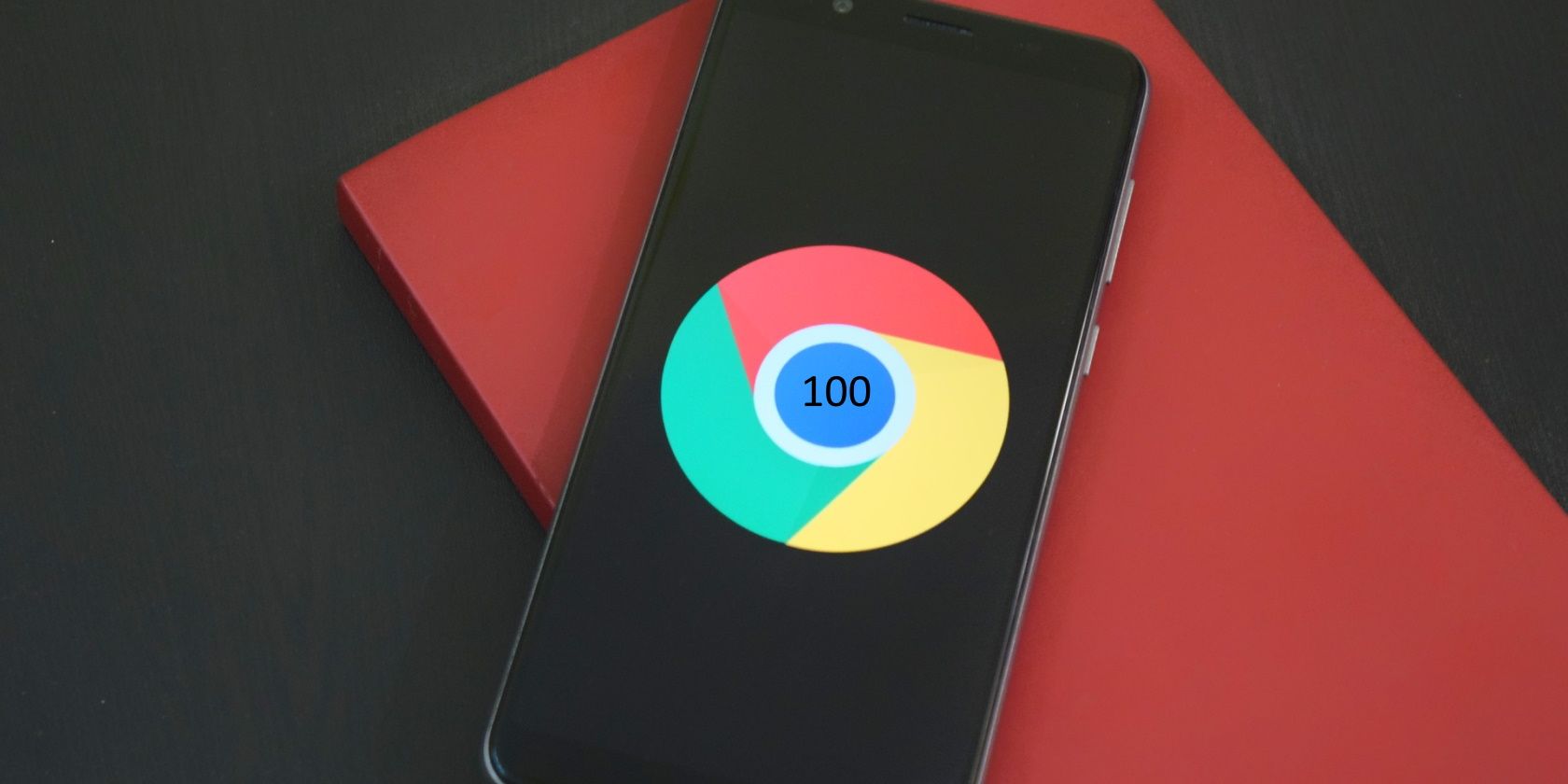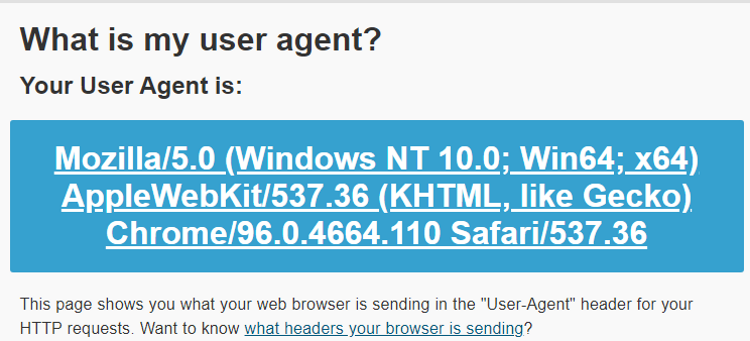Google Chrome 100 is only a few updates away, and already there are fears that it may cause certain websites to break. Thankfully, Google is already investigating this and working towards finding a fix.
Like all software, each new Chrome update attempts to fix bugs in previous versions. Now nearing its 100th iteration, Google has confirmed that Chrome 100 could, in fact, cause some sites, for instance, those built with Duda, to completely malfunction. And it's not just Google either, Firefox could be affected too.
This is because such sites use the same User-Agent string to detect what browser, browser version, and operating system you're using.
It's a User-Agent String Thing
If you head over to WhatIsMyBrowser.com to check your User-Agent string, you'll get something like the image below.
Notice that in this example, the Chrome version is written as Chrome/96.0.4664.110.
However, most web devs settle for the first two digits (major version) only, e.g. Chrome 96, which is also the case with Duda. Drawing from this illustration, Chrome/99 becomes 99, and Chrome/100 will default to 10. Y2K-bug, anyone?
There's another problem also. Duda automatically blocks any version of Chrome below version 40. Since Duda sites will read Chrome/100 as 10, it'll be automatically blocked.
Google has also identified several other sites at risk of breaking due to Chrome 100.
What Google Is Doing About This
Google is taking certain steps to fix Chrome 100 compatibility issues. Firstly, it is introducing a new Chrome flag that locks the Chrome major version in the User-Agent string to 99 and forces the major version number to the minor version position.
Below is an illustration showing how UA strings for Duda sites will appear for Chrome 100 with and without the new flag.
After discovering that all sites built with UK-based Yell Business were also not Chrome 100 compatible, Google began to reach out to individual web developers about the upcoming glitch.
So far, this outreach method has worked for Yell Business as it has been able to make its entire network Chrome 100 compliant.
However, it remains to be seen if Google can reach every single developer individually and on time before Chrome 100 rolls out on March 29, 2022.
Firefox May Be Affected Too
Firefox is also nearing its 100th update, and just like Chrome, it's also expected to cause some sites to break. Firefox 100 will first be released to the experimental Firefox Nightly, then to beta, and finally to the stable channel come May 3, 2022.
Apparently, the transition from two-digit to three-digit User-Agent String is also to blame in the case of Firefox 100. Since August 2021, both Chrome and Firefox have been test-running version 100 with several documented cases of site breakage.
What Firefox is Doing About This
Mozilla's web compatibility team is saddled with the responsibility of fixing any and all Firefox 100 compatibility issues.
To do this, it'll use Mozilla's site intervention mechanism to quickly fix any website breakage due to Firefox 100. This can be achieved by overriding the User-Agent String for the site and sending it as version 99 instead.
You can keep tabs on the process by typing about:compat into the Firefox address bar. For widespread site breakage, however, Mozilla will freeze the major version number at 99 while exploring other fixes.
What You Can Do
Start taking steps to prevent your website from breaking, come Chrome or Firefox 100. This can include familiarizing yourself with the new Chrome flag. Simply search for and enable the ForceMajorInMinorPositionInUserAgent flag.
You can also encourage your followers, subscribers, or customers to try other Chrome or Firefox alternatives in the event that your site breaks when Chrome 100 is released.




